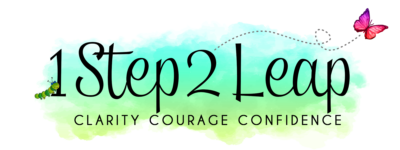What if I never received a grade, what if I never received a certificate, what if I received no external proof or recognition?
How would that shape my life?
I sat down with a piping cup of tea this morning with these thoughts. I could hear the birds chirp – do they ever get a certificate of “well chirped”? As I heard them joyfully chirp away, I saw the celery has grown and there were a few lemons on the lemon tree – my thoughts continued – What inspires them to bear fruit?
That’s when the inner voice answered – sense of duty, a state of flow
Operating from a place of duty is more liberating than constricting. This notion is counter-intuitive and often meets resistance. There are remarkably few who understand that a sense of duty can set you free.
This organic sense of duty for self with no external accountability gives access to a pure sense of joy. Think about it if you could
- Learn for the joy of learning
- Dream for the joy if dreaming
- Write for the joy of writing
- Coach for the joy of coaching
- Perform for the joy of performing
No pressure of outcome. Athletes often describe this as joy of playing vs. pressure of winning.
The moment the focus turns to outcome, the joy withers. Once the mind engages with the demand for external validation, it’s difficult for it to sense the internal joy.
When you start focusing on outcomes and what people will say about your work, you lose site of the inner joy that comes from creating something beautiful or meaningful.
I can vouch that whenever I looked upon the outcome as my identity, I felt immense pressure. I lost sense of joy. You can feel it inside; you being something other than your true, joyful nature and yet unable to shake off the obsession of the goal.
Performing actions for the sake of performing, a sense of duty – Karma Yoga, some call it, for me it is a heightened state of flow.
You can’t “decide” to do things for sake of doing. That decision itself has then confirmed the attachment to the outcome. It’s like declaring, I will meditate for inner peace. Remember Po from Kung Fu Panda banging his head for inner peace?
It’s a complicated web we weave when we crave the state of flow, that desire prevents us from being in the flow.
What is this state of Flow?
Some think of this state of flow as the sweet point between being challenged and bored. For me, the state of flow is like working the entire day without feeling you “worked”. It’s an effortless flow of energy.
Flow can be described as the optimal engagement with a task or experience that allows for creativity to emerge and for performance to become its best. This state is characterized by complete immersion into one’s actions.
You become one with your writing, one with the excel sheet or one with the cup of tea.
I believe that state of flow is a term coined by Hungarian psychologist Mihaly Csikszentmihalyi to describe a mental state in which one has entered into an automatic routine and experiences joy.
How does one attain a state of flow?
The basic requirement to achieve this state of flow is to be immersed in the present moment.
Today, I offer you 5 practices to boost the probability of attaining the flow state.
1. Shut off external distractions:
A state of flow requires you to be engaged in the present. The more distractions you allow, the higher the chances for the mind to wander off. Keep that phone in the other room or keep it on silent. Keep only the required tabs open.
2. Focus on the process and not the outcome.
The more you focus on the outcome, the lesser energy you have towards the process. Focus on outcome diverts your energy from the present to the future. You selected your outcome and then a process. After that, stick to the process until you achieve the goal. Make intermittent reviews to adjust the process, but don’t judge the process every minute.
A watched pot never boils!
3. Keep an open heart
An open heart allows all possibilities. If you pre-empt failure based on your experience or fear of the future, you disallow success this time even before embarking on the journey. Say a prayer or an affirmation to open your heart to all possibilities.
4. Practice mindfulness
Mindfulness practice strengthens the ability to observe your thoughts without engaging in them. You practice coming back to your breath. This practice, when extended through the day, will help you come back to your work, even if thoughts demand attention from you.
5. Relaxed body
Your body should be in a relaxed state. Exercise keeps the body supple. Good hydration ensures lesser brain fog moments. Quality nutrition keeps overall physical health in a great state. Stretching is very much recommended when you have long sitting hours.
These 5 practices improve the probability of attaining a state of flow. It allows you to operate with that sense of duty that focuses on discharging an activity with complete attention.
You can experience joy even while attending a so-called boring task if you are in a state of flow. It’s a matter of a sense of duty. It’s a matter of becoming present to the task at hand.
PS: When you have experienced that state of flow, it’s tempting to sit with an intention to achieve that flow once again. My advice – stay away from this temptation and simply flow!


